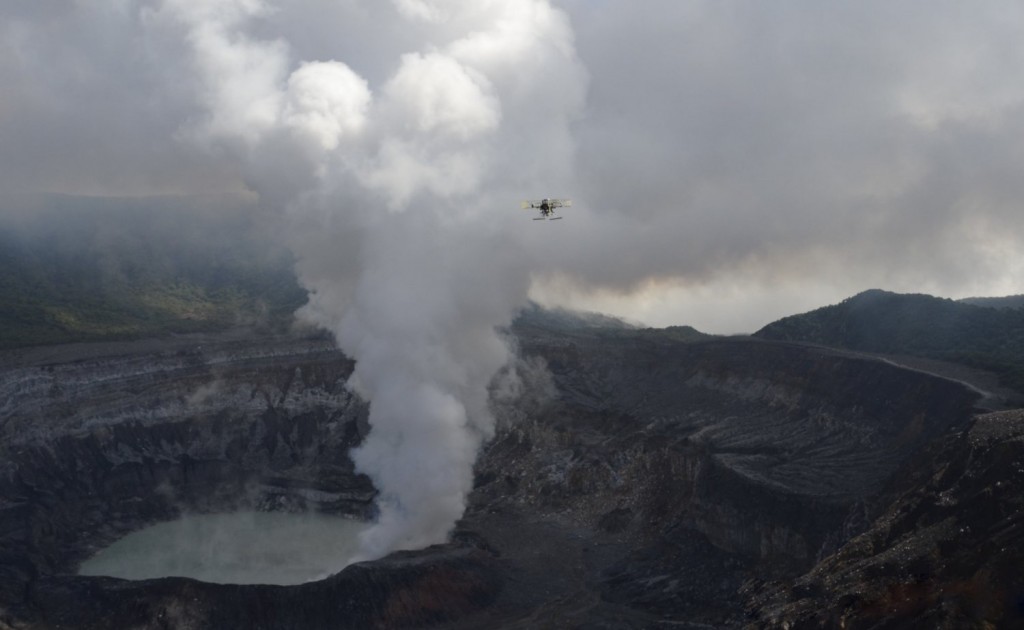 [Click on image to enlarge]
[Click on image to enlarge]
Researchers at the Universidad Politécnica de Madrid in collaboration with the University of Costa Rica are involved in exploration and monitoring of active volcanoes in the central mountains of Costa Rica by employing RPAS.
This kind of aircraft allows the acquisition of real time information in previously inaccessible areas, such as gas plumes emanating from the volcano. It allows to have a better modeling of the volcano state and its activity, by increasing the data acquisition speed as well as improving the researchers’ safety. Additional advantages include the low cost of operation and a high frequency in the acquisition of such data.
Researchers at Computer Vision Group and Hydrobiology Group at the UPM, in collaboration with the the CICANUM (U.C.R.) have established an international cooperation programme in order to evaluate the use of Quadrotor RPAS for visual inspection, thermal and geo-referenced data acquisition (pressure, temperature gases and others) of active volcanoes in the central mountains of Costa Rica.
The main goal of this study is to optimize remote sensing techniques of hydrothermal alteration and hot spots on volcanic mountains through the acquisition of thermal and visible images with an AscTec Pelican Quadrotor RPAS. Experimental tests have been conducted by UPM researchers at the Poas and Irazu volcanoes craters.
The employed RPAS has been operated in automatic flight mode in all phases of its mission. The aircraft payloads include different types of sensors and cameras, from visible to thermal, for the acquisition and storage of geo-referenced data. This information is then analyzed by scientists in order to monitor and study the volcano’s activity and improve volcanic risk assessment in the region.
The first stage of this project was finalized in January 2013. It represents an important milestone in the field of the prevention of disasters due to volcanic eruptions, as well as being a new research instrument for the real-time monitoring of active volcanoes.
